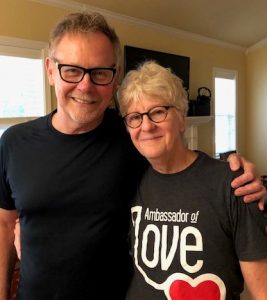
Are you a bucket filler? Basically, those who are bucket fillers treat others well. Studies show that if we want our children to thrive physically, spiritually and emotionally, we must fill their buckets. We must praise them, affirm them and encourage them on their journey toward full maturity. Indeed, we must be about the business of filling the buckets of all people for the sake of building up. Bucket filling has the power to transform. Perhaps the most extraordinary example of this phenomenon is found in Jesus’ encounter with the woman at the well.
At a time when “bucket filling” was rare—in a culture where lepers were required to cry “unclean” as they moved from place to place—where women were forced to hide behind screens in the synagogue, separated and hidden from men—where the only good Samaritan was a dead Samaritan as far as the religious elites were concerned, Jesus broke down barriers between people. He ignored long-held social and religious restrictions that had separated people for centuries. Wherever he went, Jesus proclaimed the good news that God loves all people. Jesus was the ultimate bucket filler!
The pinnacle of Jesus’ bucket filling came at a place called Sychar where he encountered a Samaritan woman at Jacob’s well. Both Jesus and the woman showed incredible courage that day. One brave and thirsty man asked for water from someone whose gender, race and religion made her the wrong person to serve him. One brave and generous woman gave water to someone whose gender, race and religion make him the wrong one to receive.
These kinds of encounters, whether accidental or intentional, have the power to change us—to fill our buckets and the buckets of others. Whenever someone invites us to step up and do something outside our comfort zone, they are not emptying our bucket, they are filling it. They are forcing us to draw deep within ourselves—to ask ourselves “What does it mean to be faithful? What does it mean to follow Jesus? What does it mean to be filled with the living water that gushes up to eternal life?”
Britt Skarda, Senior Pastor, retired, Pulaski Heights United Methodist Church, Little Rock, AR
*Inspired by the book How Full is Your Bucket?, Tom Rath and Donald O. Clifton, 2004.
Join Regina and Reverend Skarda for Episode 6 – Love is a Verb


